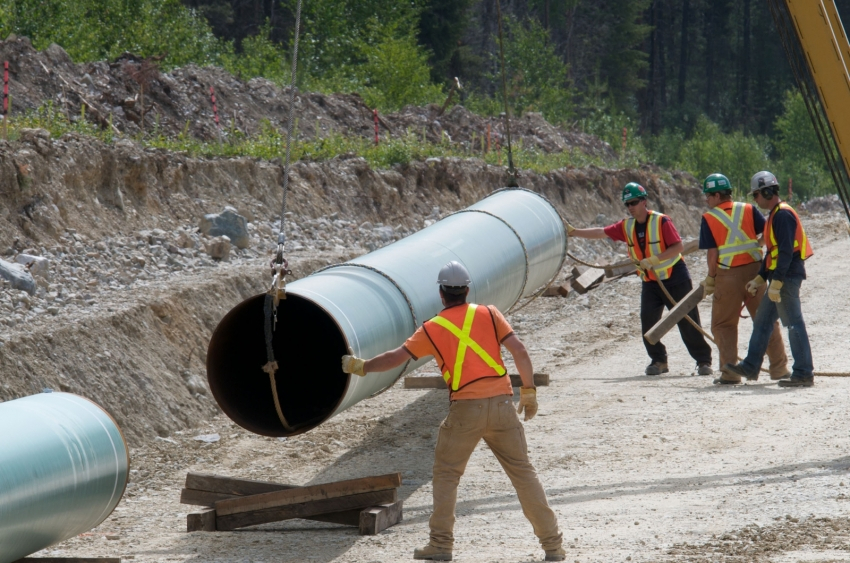Support strong Canadian climate journalism for 2025
Lawyers representing the City of Vancouver told the National Energy Board Friday that they are opposed to the proposed expansion of Kinder Morgan’s Trans Mountain Pipeline.
Standing before the NEB at a hearing in Calgary, the City of Vancouver lawyers asked the NEB not to recommend approval of the pipeline.
John Hunter, representing the city of Vancouver (along with Susan Horne), told the NEB that their reasons for rejecting the pipeline were the culmination of 25 months of close work with other intervenors.
Over the 25 months that work resulted in 12 evidence-based reports prepared by independent subject-matter experts, which concluded that there is no need for the pipeline expansion, Hunter told the hearing.
The reports also concluded that the risks of an oil spill and impact on climate change are not justified and that the proposal is not in the public interest.
“The strong opposition of all the affected municipal and First Nations governments surrounding Burrard Inlet demonstrates the weakness of this proposal on public interest grounds,” Hunter told the hearing.
He also cited the high degree of uncertainty around future Canadian oil production growth.
“It would be wrong for the board to accept on the one hand unreasonably optimistic economic benefits evidence filed by Trans Mountain that do not take into account this high degree of uncertainty, and to reject on the other hand the evidence of significant risk and extreme impacts of an oil spill in Burrard Inlet on the basis of uncertainty around when and where an oil spill will happen.”
Hunter said, “There’s a strong risk of significantly adverse environmental effects of this project that outweigh any benefits.”
Kinder Morgan could not be reached for a comment.
The city counsel said that lower oil prices and the falling demand for unconventional oil means that production levels for oil sands bitumen will peak in the near future and then will begin to decline over time.
Hunter said that leads the city to conclude that there will be no need for the expanded pipeline capacity created by the proposed pipeline.
Hunter also chastised the board over “significant concerns with what is considered to be a flawed process which allowed for no opportunities for oral cross-examination and inadequate information sharing throughout.”
Over the past 18 months, the City of Vancouver has collected questions and concerns about the proposal from the public, which helped to inform the city's process and ensure that all voices are heard.
Over 5,000 people have filled out an online survey with over 80 per cent of respondents opposed to the Kinder Morgan pipeline expansion proposal. People continue to be encouraged to join the conversation online at #TalkTankers.
The Trans Mountain pipeline expansion is a proposal to add 987 kilometres of brand new pipeline to an existing system that transports 300,000 barrels of refined petroleum and crude oil from the tar sands in Alberta to refineries and terminals in Vancouver and Washington.




Comments